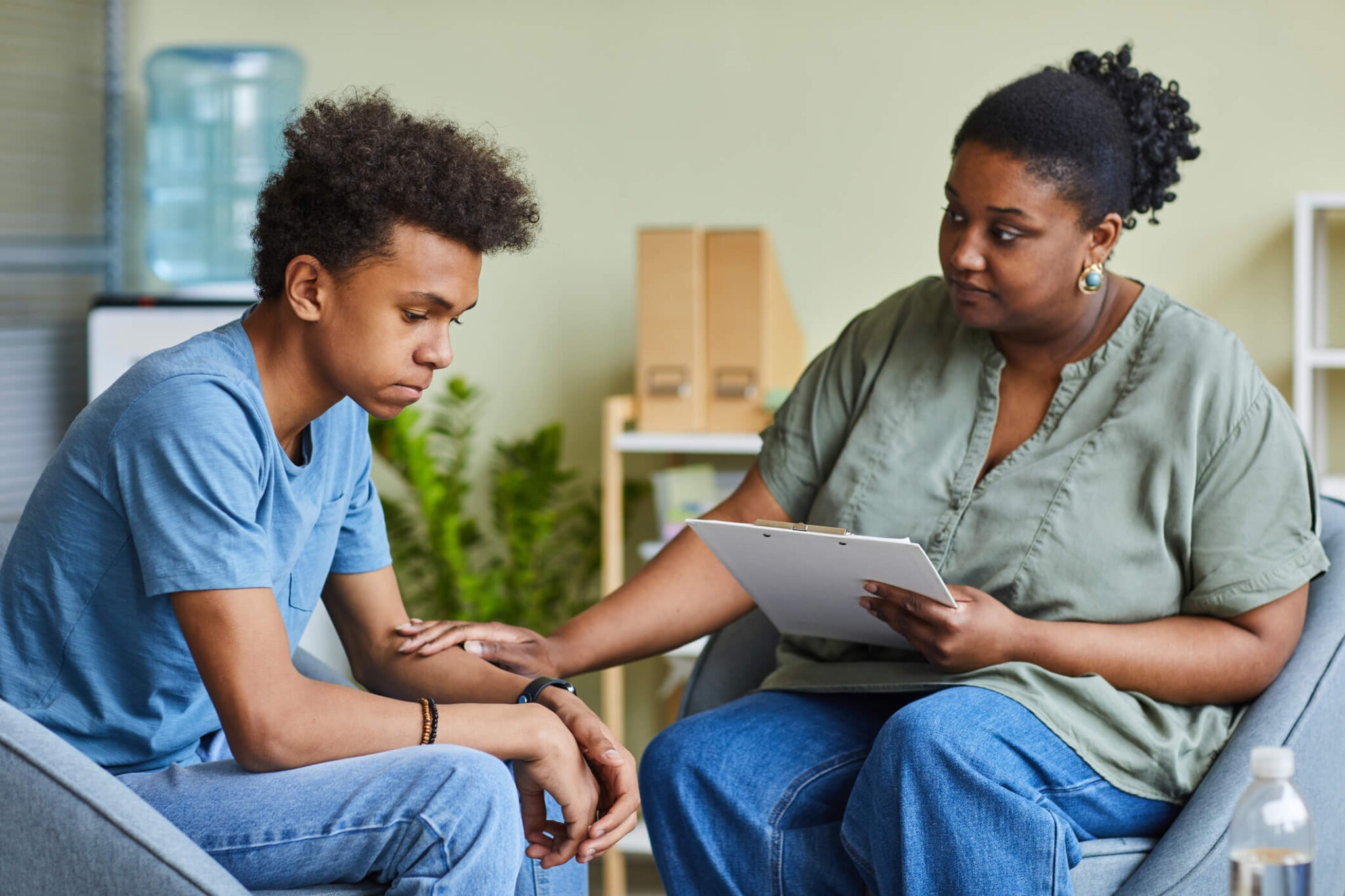Ask Beatty: Key to Successful Mental Health Care Is Early Identification, Intervention

President Joe Biden proclaimed May 2023 as National Mental Health Awareness Month, honoring the courage of tens of millions of Americans living with a variety of mental health conditions and joining with the hundreds of millions of people around the world who recognize World Mental Health Day on October 10 every year.
The theme for 2023, developed by the World Foundation of Mental Health, is a game-changing breakthrough: Mental Health Is a Universal Right. And let us not forget that October is also Domestic Violence Awareness Month and that every minute, 20 people are physically abused by an intimate partner.
Celebrating and acknowledging these days is an important first step in encouraging discussions and changing narratives about mental health issues. However, there is so much more that can be done and should be done during the rest of the year to help normalize these discussions about mental health, domestic violence and mental health treatment.
The reality is that access to care and treatment for mental health issues remains out of reach for most people in the United States. More than one-fifth of U.S. adults (21% or 52.9 million) were diagnosed with a mental health illness in 2020. From 2002 to 2019 the number of adults aged 18 or older with mental illness increased from 39.8 million to 51.5 million — a nearly 30% increase.
The pandemic further exacerbated mental health problems for all ages — among and including adults aged 18 and older. One of the basic issues we haven’t grappled with is how expensive it is to pay for ongoing counseling. Typically, insurance companies have a cap on how many mental health sessions they will pay for (if any) and the reimbursements do not usually begin to cover the majority of the fee.
OUR CHILDREN ARE IN TROUBLE
In addition, the figures paint a highly disturbing picture of the growing youth mental health crisis. From 2009 to 2019, the share of high school students who reported experiencing persistent feelings of sadness or hopelessness increased by 41%. From 2010 to 2020, suicide death rates increased by 62% among adolescents ages 12–17.
In early 2021, emergency department visits for suicide attempts were 51% higher for adolescent girls and 4% higher for adolescent boys than in early 2019. In October 2021, the American Academy of Pediatrics, the American Academy of Child and Adolescent Psychiatry and the Children’s Hospital Association declared child and adolescent mental health a national emergency.
We’ve not yet been able to comprehend the magnitude of the problem and the suffering of millions of people — young and old.
NORMALIZING MENTAL HEALTH IN OUR SCHOOLS
The majority of children in the United States begin kindergarten at age 5, and 79% of these children are enrolled in full-day programs. Because teachers, school psychologists, social workers and other counselors have extended contact with children on a daily basis, they are often in the best position (along with parents) to recognize early signs and patterns of behavior that pose a potential risk to a child’s academic, social, emotional or behavioral functioning. Schools have an important role in normalizing the talk about mental health and substance abuse and defraying the prohibitive costs so many families face.
As educators, we are in a unique position to help students and parents alike tackle mental health problems head-on. Ongoing mental health programs in the schools throughout the school year normalize the subject matter, making it easier for both parents and students to reach out and ask for help, without the feelings of guilt or shame.
“Ask the Therapist” boxes could be placed throughout the schools, where students would be able to anonymously ask a therapist questions about mental health, relationships, sexuality and substance abuse. A regular schedule could be set up where the students’ questions would be answered in the classrooms or at student assemblies.
The reality is that we all go through numerous ups and downs in our life regardless of our age, socioeconomic background, ethnicity, race, religion or sexual orientation. This reality in itself is something that needs to be routinely communicated to our young people so that they do not feel alone and isolated. We need to help them understand the importance of acknowledging, addressing and resolving (as best as they can) the difficulties that get in the way of their lives and relationships.
We also need to reinforce the idea that it is our avoidance, denial, blame, self-blame and defensiveness that keeps us in a downward spiral. And finally, we need to make them feel that people do care and that the very best thing that we can all do when life becomes too difficult is to reach out and ask for help.
Our schools can and need to be much more proactive in their roles as educators and do a better job identifying, intervening and defraying costs for the mental health crisis that people are facing. After all, our precious children are our future. We say we love them. The schools and these programs can be one of the many ways we can show them that we really do mean what we say.
Beatty Cohan, MSW, LCSW, AASECT is a nationally recognized psychotherapist, sex therapist, author of For Better for Worse Forever: Discover the Path to Lasting Love, national speaker, national radio and television expert guest and host of the weekly “Ask Beatty Show” on the Progressive Radio Network. She has a private practice in NYC and East Hampton.
Beatty would love to hear from you. You can send your questions and comments to beattycohan.msw@gmail.com. For more information, go to beattycohan.com.










